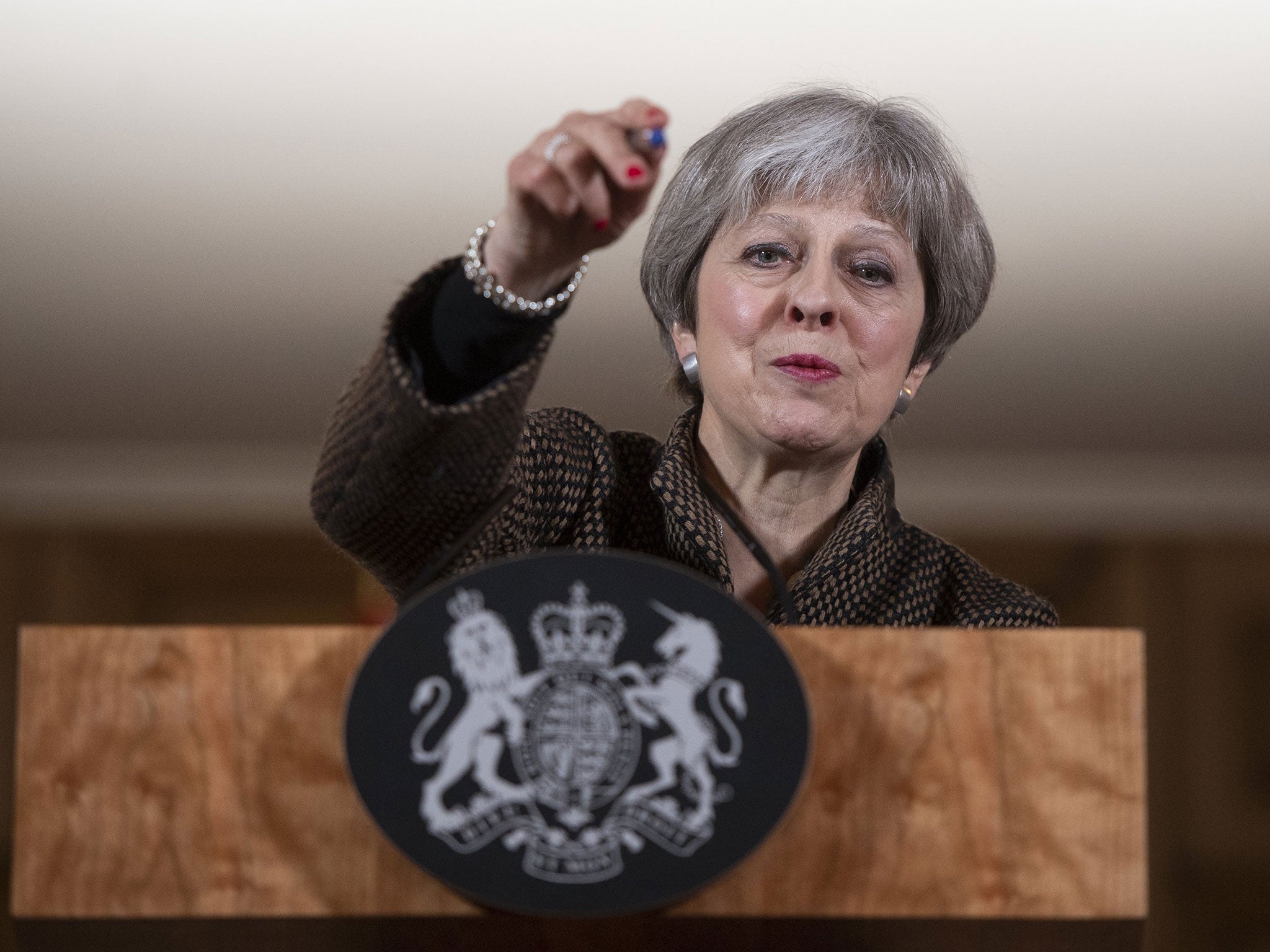Theresa Could perchance has won a 2d symbolic vote on her decision to open airstrikes after one other day of fraught parliamentary debate on Syria.
The prime minister’s advisers judge the displays she has efficiently navigated difficulties arising from her switch to push ahead with a military operation with out first consulting MPs.
But Jeremy Corbyn extinct the controversy to demand that the Residence of Commons “gain abet our abet an eye on” of choices to open any military movement, with a brand new “Battle Powers Act”.
The enchancment got here as inspectors had been role to finally own it to the positioning of the alleged Douma chemical weapons attack on Wednesday, with Ms Could perchance accusing Moscow of combating the scientists from doing their work.
Sooner than the Commons vote on Syria, Ms Could perchance told MPs that coming to parliament earlier than venture military movement would “compromise the effectiveness of our operations and security of British servicemen and females”.
She attacked the suggestion of a Battle Powers Act, claiming it would gain “fundamental flexibility” from instances which are “by definition unpredictable”.
She went on: “Making it illegal for Her Majesty’s Authorities to undertake this form of military intervention with out a vote would severely compromise our nationwide security, our nationwide pursuits, and the lives of British citizens at home and abroad.
“And, for thus long as I’m prime minister, that will never be allowed to happen.”
She concluded by announcing that after two days of debate no one would possibly doubt her commitment to be held guilty by parliament, and additionally that the tone of the controversy had been supportive to the strikes.
A vote associated to the Syria movement became already won by the government on Monday, even though it became not on a substantive movement – one which explicitly seeks to approve the movement or not.
The movement of Tuesday’s vote, which said the Commons has “concept to be parliament’s rights when it comes to the approval of military movement by British forces”, became additionally neutral in tone.
But Mr Corbyn called on his get MPs to vote in opposition to it, no topic Labour having called the controversy, to model opposition over how they judge the government sidelined parliament when it comes to the military movement.
Sooner than the movement became passed by 317 to 256, Mr Corbyn’s speech became met with defective tempered heckling from Tory MPs, who constantly tried to intervene whereas the Labour chief became speaking.
Speaker John Bercow gave warnings to Conservative backbenchers goal like Alec Shelbrooke and Ticket Harper at some level of the direction of the controversy.
Outlining his proposed Battle Powers Act, the Labour chief said it became for the Commons “to gain matters into its get arms and gain abet our abet an eye on”.
He added: “There’s no more severe grief in choices made by parliament on matters of war and peace, and the government taking planned military movement.
“That convention became established in 2003, it became enshrined in Cupboard in 2011, and the then the foreign secretary gave every indication that he supported the precept of parliamentary scrutiny and parliamentary approval of this form of main step.
“I’ve outlined the caveats which would be there in a case of overriding emergency, but I elevate out assume it is extraordinarily fundamental that the Residence of Commons, as one of the oldest parliaments on the planet, holds the government to story.”
Earlier within the day the prime minister accused Moscow of combating inspectors for the Organisation for the Prohibition of Chemical Weapons (OPCW) from reaching Douma.
Russian officials at OPCW headquarters in The Hague later said arrangements had been being made for the inspectors to scramble to the positioning on Wednesday.
Russian foreign minister Sergey Lavrov has flatly denied that Russia had “tampered” with the evidence, and insisted there isn’t any such thing as a proof that chemical weapons had even been extinct in Douma.
The Russian ambassador to Eire warned that his country is losing “the final bit of belief” it had with the West, describing this as a “very terrible vogue”.
Speaking at a press convention in Dublin, Yury Filatov instructed the strikes had been intended to obstruct the investigation so no one would know the fact, along with that specialists haven’t but figured out any traces of chlorine or every other toxic brokers.
“As a ways as we are in a position to perceive there became no attack,” he said. “No longer a single native resident became ready to substantiate that a chemical attack had definitely taken place.”
Mr Filatov said the suspected chemical attack had “undoubtedly been staged”, and that the photos had been “fabricated”.
![]() Reuse screech
Reuse screech


Commentaires récents